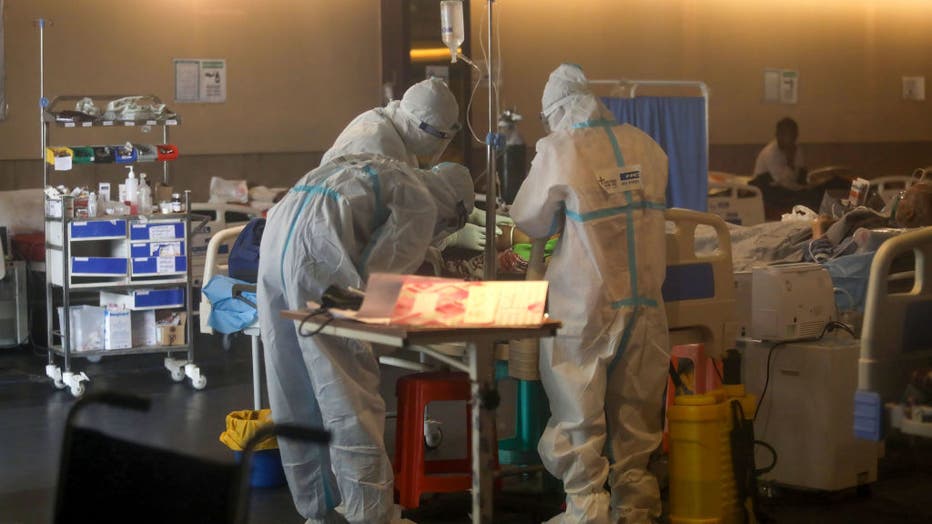India's coronavirus doctors report 'black fungus' infections among some patients
India’s health officials warned the country’s doctors to be on the lookout for mucormycosis, or so-called "black fungus" infections among coronavirus patients, particularly those with diabetes. The infection, which could be fatal, may cause black discoloration of the nose, facial pain, numbing or swelling, fever, chest pain or other issues.
The infection, which is caused by a group of molds that live in the environment, most commonly affects the sinuses or lungs after inhaling fungal spores, but can also occur on the skin after a cut, burn or other injuries, according to the Centers for Disease Control and Prevention (CDC).
Those most at-risk for the rare infection are patients with diabetes, cancer, transplant recipients, those patients with low white blood cell counts, those with long-term corticosteroid use, a history of injection drug use, patients with high iron, and premature or low birthweight babies.
The infection cannot be spread between patients or animals.
"There have been cases reported in several other countries – including the U.K., U.S., France, Austria, Brazil and Mexico, but the volume is much bigger in India," David Denning, a professor at Britain’s Manchester University and an expert at the Global Action Fund for Fungal Infections, told Reuters. "And one of the reasons is lots and lots of diabetes and lots or poorly controlled diabetes."

FILE - Doctors and healthcare staff wearing Personal Protective Equipment suits attend to COVID-19 patient inside a coronavirus care center in New Delhi, India, on May 11, 2021. (Photo by Naveen Sharma/SOPA Images/LightRocket via Getty Images)
Serious cases require surgery, including eye removal depending on where the infected tissue occurs. Antifungal medicine can also be given via IV or by mouth.
"Previously if I saw one patient a year, I now see about one a week," Nishant Kumar, a consultant ophthalmologist at Hinduja hospital in Mumbai, told Reuters.
Akshay Nair, a Mumbai-based eye surgeon, told BBC News that in the month of April he had already seen 40 patients across three hospitals suffering from the infection. He told the news outlet that many of the patients had diabetes and a history of coronavirus infection.
For now, the Indian Council of Medical Research has advised doctors to monitor blood glucose levels post COVID-19 discharge and in diabetics, and to "use steroid judiciously – correct timing, correct dose and duration," in a bid to cut down on occurrences.
Get updates to this story on FOXNews.com.

